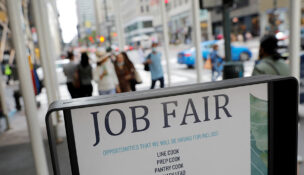Galax furniture maker adds hours, eyes hiring as tariffs spur demand
Vaughan-Bassett has domestic production footprint

Photo by DepositPhotos

Photo by DepositPhotos
Galax furniture maker adds hours, eyes hiring as tariffs spur demand
Vaughan-Bassett has domestic production footprint
SUMMARY
The tariffs reshaping the furniture import landscape might be causing headaches and head scratching across the industry, but they are also spurring new momentum for some domestic suppliers.
Vaughan-Bassett Furniture, a Galax-based domestic maker of wooden adult bedroom furniture, says it is seeing demand climb strongly enough that it has added hours across multiple departments, Vaughan-Bassett President Doug Bassett told Furniture Today.
“We have added hours to match the increase in production,” Bassett said. “We’re getting close to needing to hire, but we’ve gone from a little less than full time to full time and in some departments overtime. And then the next step after that will be to add people and add capacity if our business continues to track the way it’s tracking.”
For now, overtime has become the first step in meeting stronger order flow.
“We’ve got several departments working a little bit of overtime, and that’s appreciated,” Bassett said. “Back during COVID, we ran overtime for almost two years, every week for two years straight. So we’re right at the beginning of running overtime. That’s the first step. And, you know, first things first. Let us run some overtime, and then as business continues to improve we certainly have the option of adding people as needed.”
The boost in hours reflects a broader trend Bassett said he is hearing about across the domestic case goods segment.
“I’m hearing from other people … that all these American-made case good companies are experiencing good business,” he said. “So we are benefiting, even if not from every aspect of the tariffs like the increased prices and the uncertainty. It’s not true that this isn’t adding jobs or strengthening domestic resources. It is.”
Upholstery uncertainty
The latest round of tariffs focused on upholstered seating and related categories has created new questions about future demand trends for companies such as Vaughan-Bassett that primarily build solid wood products, but also offer upholstered beds.
“We do offer upholstered beds in about five different groups,” Bassett said. “About a third of our groups have an upholstered bed, and it’s usually one of three beds. It’s not a huge number, but it’s not an insignificant number either.”
The balance of Vaughan-Bassett’s line remains in solid wood, but the impact of tariffs on mixed assortments remains a question for some retailers. “We sell a lot more wood beds than upholstered beds,” Bassett said.
“But there are customers who do very well with upholstered beds and who consider them their primary beds. So I got people that don’t carry any of my upholstery. I’ve got other people where the upholstered bed is their primary product.”
Keeping a lid on prices with domestic footprint
While demand is strengthening, Bassett said some cost pressures are unavoidable even for a domestic supplier. The company has raised prices modestly in the past year, although it has sought to limit increases.
“With the groups we came out with last market, we have increased prices,” Bassett said. “Most of our older stuff, at either Vaughan-Bassett or Artisan & Post, we’ve gone up about 5%, and we had not had a price increase in over a year. The last price increase a year ago, over a year ago, was between 2% and 3%. So in 2024 and 2025 combined, we’re up about 7% overall.”
Bassett explained that the company does have to contend with pressures related to inputs like component parts.
“Some of those price increases are due to the tariffs on the components that you can’t get in the United States: drawer guides, hardware, screws, nails, things where there just are no American resources,” he said. “They’ve been hit with tariffs, and so we’ve been hit with higher prices.”
Inflationary pressures outside of trade policy are also part of the picture. “The other portion of it, and it’s probably close to half and half: Health care is going up, labor is going up, energy prices are going up,” Bassett said. “We live in an inflationary cycle here in the U.S. that’s affecting pretty much everything.”
For Vaughan-Bassett, the tariff-driven shift is underscoring the value of its domestic production footprint. The company has long emphasized its U.S.-made sourcing story and is doubling down on this approach as the current trade environment drives retailers to look more closely at domestic resources.
F

















